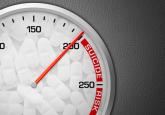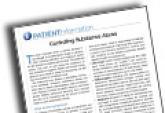Even a single alcohol binge can rapidly raise levels of endotoxin and bacterial DNA, say researchers from University of Massachusetts Medical School in Worcester. Even modest increases have “substantial biological effects,” the researchers report.
In the study, 11 men and 14 women aged between 21 and 56 years with no history of alcohol use disorder were given about 2 mL vodka 40% v/v ethanol per kg body weight in 300 mL orange/strawberry juice. Blood was drawn at baseline, every 30 minutes for 4 hours, and 24 hours after alcohol consumption.
The acute alcohol binge produced maximum blood alcohol level (BAL) 60 minutes after consumption; levels declined gradually thereafter. Women showed a slower decline in BAL; even 24 hours later, their levels were higher than those of the men. Serum endotoxin levels rapidly increased 30 minutes after consumption, remained high for 3 hours, and returned to lower than baseline levels by 24 hours after alcohol intake. Here, too, women’s levels were higher than those of the men’s, and a significant difference in endotoxin levels was seen at 4 hours between men and women (P < .05).
Circulating endotoxin led to elevations in acute phase proteins, including “rapid and prolonged” increases in serum lipoprotein binding protein and soluble CD14 (a gene that encodes immune system protein). By contrast, the volunteers who drank no alcohol showed no changes.
Serum levels of endotoxin, also known as lipopolysaccharide (LPS), a component of Gram-negative bacteria, rose. The noteworthy aspect, according to the researchers, is that the increase in circulating bacterial components not only included Gram-negative bacteria, but other enteric bacterial elements as well, such as 16S rDNA, a marker of bacterial translocation from the gut. They found a significant increase in serum 16S bacterial rDNA levels at 1, 4, and even 24 hours after binge drinking.
When the researchers evaluated the effect of the biologically comparable concentrations of LPS in whole blood of normal volunteers, they found that the concentrations of endotoxin observed in the serum after acute binge drinking had “significant biological activity,” with a significant induction of inflammatory cytokines tumor necrosis factora and IL-6, and the chemokine MCP1 (monocyte chemoattractant protein-1) (P < .05). LPS, the researchers note, is a “potent trigger” of the inflammatory cascade. In animal studies, LPS administration has contributed to alcohol dependence and promoted increased alcohol intake.
This is the first study to show that acute alcohol binge drinking translocates 16S rDNA into the systemic circulation in otherwise healthy adults, the researchers say. They theorize that the persistent increase in bacterial components after repeated binge drinking could result in immune activation and inflammation and initiation of alcoholic liver disease. In chronic alcohol use, they point out, activation of the inflammatory cascade is a major component of organ damage in the brain and liver.
Source
Bala S, Marcos M, Gattu A, Catalano D, Szabo G. PLoS ONE. 2014;9(5):e96864.
doi: 10.1371/journal.pone.0096864.


